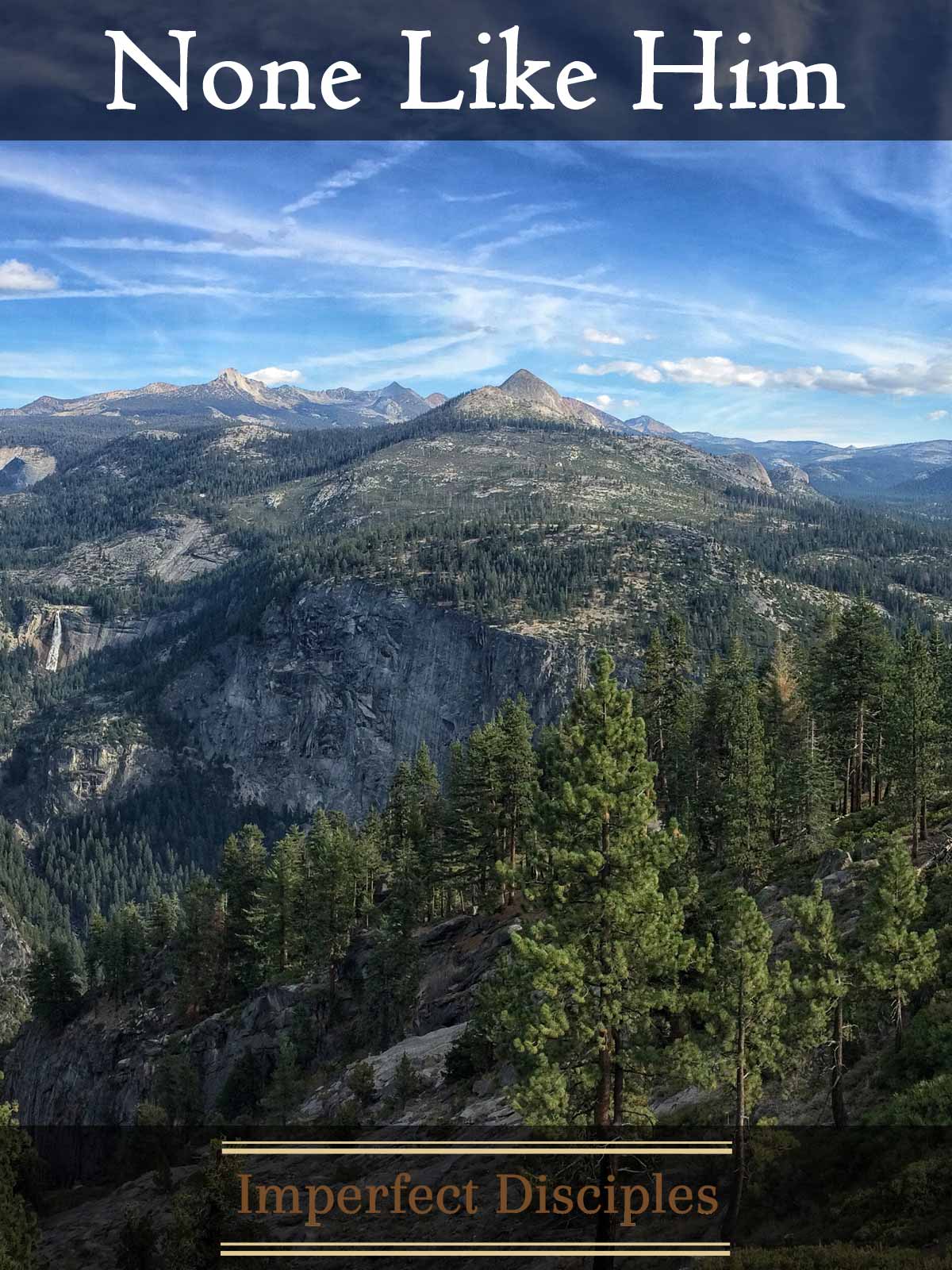It’s been on my mind lately, because of various things going on around me, that we can’t truely love and forgive others until we really understand how much Christ loves and forgives us. Being able to do that for others requires us to meditate on and have an intimate knowledge of what he’s done for us.
I started a book in the mom’s group I’m in at church called None Like Him by Jen Wilken. In her introduction she talked about something very similar:
“When we fear God rightly, we recognize him for who he truely is: a God of no limits, and therefore, utterly unlike anyone or anything we know. This is the start of becoming wise.”
When we think about him and who he is, we learn holy fear – worshipful reverence and awe – towards our holy God. Our hearts will be turned towards worship of him, as we come to a right understanding of who he is, how he’s different from us, and the ways we can seek to be like him.
She wrote this book with the intent of exploring 10 attributes of God. These particular attributes are ways that he is different from us. In the first chapter she mentions that theologians, when talking about the attributes of God, usually come up with two lists. One list has attributes that only God can be, the second is attributes that God is, and we can be too. Here is the example list she gave in her book:
Only God Is: Infinite, Incomprehensible, Self-Existent, Self-Sufficient, Eternal, Immutable, Omipresent, Omniscient, Omnipotent, Sovereign.
God Is (and We Can Be): Holy, Loving, Just, Good, Merciful, Gracious, Long-suffering, Wise, Jealous (for his glory), Faithful, Righteous, Truthful.
She talks about how, when the Holy Spirit lives in us, the second list is the one that can become true of us as we learn to walk in obedience to God’s commandments. However as fallen humans we tend to try to usurp and rival God’s glory, instead of reflecting his glory as we were designed. She describes this in her book on page 23:
Rather than worship and trust in the omniscience of God, we desire to be all-knowing ourselves. Rather than celebrate and revere his omnipresence, we seek ultimate power ino our own spheres of influence. Rather than rest in the immutability of God, we point to our own calcified sin patterns and declare ourselves unchanging and unchangeable. Like our father Adam and our mother Eve, we long for that which is intended only for God, rejecting our God-given limits and craving the limitlessness we foolishly believe we are capable of weilding and entitled to possess. Even as the redeemed, we crave the forbidden fruit of rivalry.
Would you join me as I go through this book, learning attributes that are true only of God, and why that’s a good thing?

